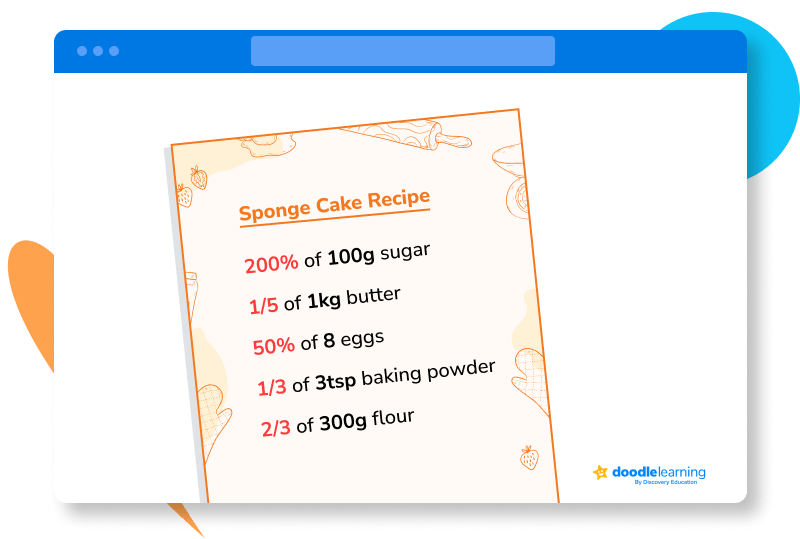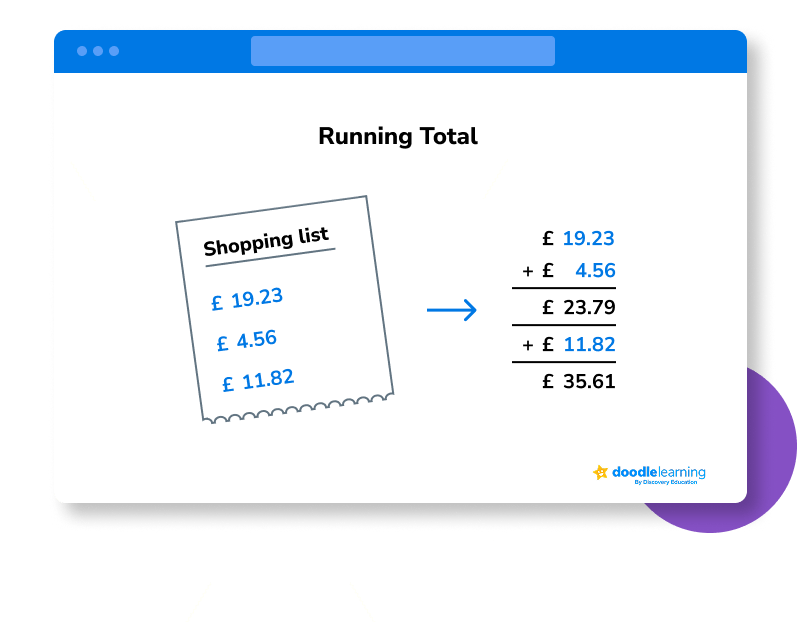


Author
Mhairi Sim
Published
August 2025


Key takeaways
Table of contents
In Year 5, children continue their journey through the Key Stage 2 curriculum, meaning that more complex challenges are ahead of them. Long multiplication and increasingly difficult problems involving decimals, fractions, and percentages are just some of the hurdles to overcome this year.
This can be a little overwhelming for our kiddos, but with the right activities to reinforce learning, they’ll take it all in their stride. But what are the right Year 5 maths activities to put kids at ease and help them take on board these trickier skills?
In this post, we’ll share our favourite Year 5 maths activities that blend learning with fun to keep students motivated as they navigate this year. We’ll also take a look at which skills are taught in Year 5, how these activities reinforce them, and share some resources you can use to support your kiddos, too!
Give learners a list of items to shop from, each with a price and a percentage discount. Kiddos will work out the sale prices and decide what to buy with the budget you’ve given them! This is the perfect way to apply percentage skills in a real-world context that we all use.

Challenge your Year 5 students to devise their own maths board game using concepts they’ve been learning. In the classroom, you could split learners into groups and give each a particular topic to target with their board games. Make sure you spend time playing the games together once they’re finished!
Give your kiddos a list with different weights, lengths, and heights and task them with finding and recording items that match those measurements. Offer a reward for completed lists or the quickest team, and this activity quickly becomes a fun, hands-on measurement session with purpose and an exciting end-goal!
Players will draw number cards and arrange them to create negative numbers. They’ll compare their numbers, and the winner is the player with the number that best meets the criteria (e.g. highest/lowest number). Many learners struggle to understand that, for example, -8 is a lower number than -5, so the repetition of this activity is perfect for reinforcing this concept.
Start the day off with a maths riddle to warm up learners’ critical-thinking skills ahead of a maths lesson. Here are 45 maths riddles and brain teasers to get you started!
One player thinks of a number (make sure they write it down so they don’t forget it or cheat!) and will let others know if they are “too high” or “too low” as they try to guess. For an added challenge, players can use numbers to three decimal places!
Create some angles on your learners’ desks using some masking tape, then let them measure with protractors. Let them use whiteboard markers to write the angles onto the desks for added fun! Kids always love this activity as it really does take learning quite literally off the page, and onto the table!
Set your kiddos up to follow a recipe with a catch – they need to use their knowledge of fractions or percentages to determine the correct quantities.

You can add another real-life element by having them mix up and bake their recipes to see if they’ve got the quantities correct! Activities like this are also really helpful in paving the way for learning about ratios in Year 6.
Give your learners a shopping catalogue and a hypothetical budget of £100. Their challenge is to create a shopping list that totals as close to £100 as possible – can anyone get their list to total £100 exactly?. No calculators allowed, as this activity is the perfect way to practice manual addition skills like creating a running total.

The Year 5 maths curriculum continues to build on the work already done in Year 3 and Year 4. As well as consolidating the skills from these years, learners will:
In each of these areas, kiddos are also expected to develop their problem-solving and reasoning skills. To learn more, take a look at our helpful Year 5 maths curriculum guide for parents, which explores exactly what your kiddos will cover during this year.
While formal “at-the-board” teaching builds our learners’ knowledge of key skills, it’s important that we give them the opportunity to apply these skills to build their confidence! Using the fun and interactive activities we’ve suggested works to do this by:
Encouraging collaboration – the chance to work in groups during games and activities encourages kiddos to discuss problems, learn from each other, and ultimately develop their mathematical reasoning and problem-solving processes.
Unlock unlimited maths questions
Put your skills to the test with fun exercises + maths games that are proven to boost ability!
Try DoodleMaths for free!
Select a year group
If you’re looking for ready-to-use resources for your Year 5 learner, then we have some great recommendations that can be used by learners independently or as part of a guided learning session.
Great Year 5 maths activities are those that combine fun with clear learning goals. These often have links to other subjects (e.g. maths or science) and incorporate real-world contexts (e.g.cooking, transport timetables, budgeting).
Try to think beyond a worksheet or textbook and use games, crafts, competitions, and mental maths challenges to hook your kiddos. If they’re engaged with the activity, they’re engaged in the learning!
If you’re looking for free Year 5 maths resources, there is a huge selection online. Here are a few favourites from Doodle that work brilliantly for use in the classroom and at home:
If you’re a parent, it can also be worth having a conversation with your child’s teacher, as they may have extra resources that they can send home with your child for extra practice!

Parents, sign up for a DoodleMaths subscription and see your child become a maths wizard!

Book a chat with our team
If you’d like to use Doodle’s browser version, please visit this page on a desktop.
To log in to Doodle on this device, you can do so through our apps. You can find out how to download them here: